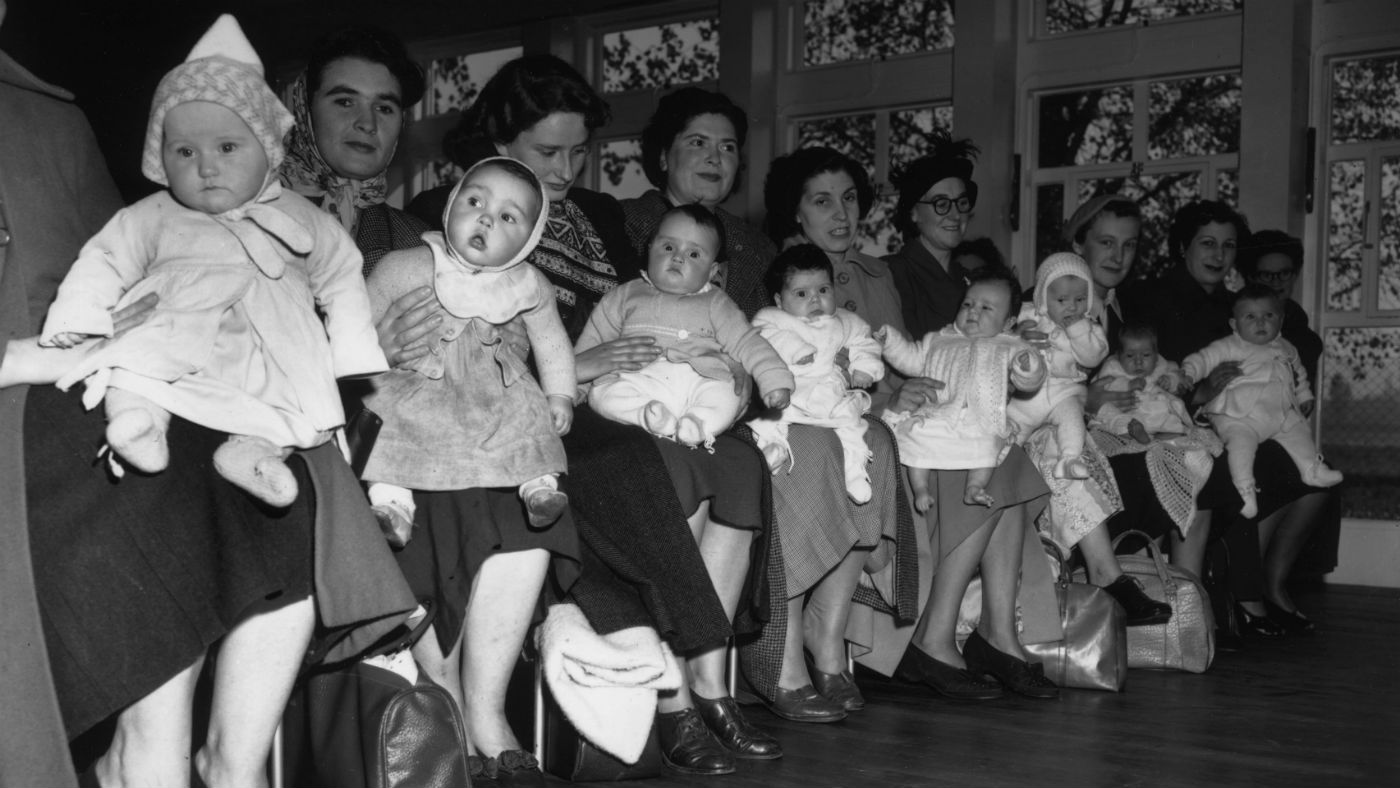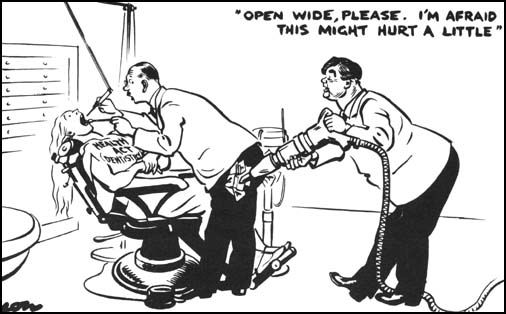Happy 70th birthday, NHS: what the newspapers said in 1948
The media welcomed the arrival of the National Health Service - albeit with some reservations about a 'state takeover'

A free daily email with the biggest news stories of the day – and the best features from TheWeek.com
You are now subscribed
Your newsletter sign-up was successful
The NHS turns 70 today, marking seven decades of “free at the point of use” healthcare in the UK.
The National Health Service Act, passed by parliament in a post-war flurry of social reform in 1946, finally came into effect on 5 July 1948.
Before the passage of the act, many working people could access medical treatment only through workplace health insurance schemes, introduced by the 1911 National Insurance Act.
The Week
Escape your echo chamber. Get the facts behind the news, plus analysis from multiple perspectives.

Sign up for The Week's Free Newsletters
From our morning news briefing to a weekly Good News Newsletter, get the best of The Week delivered directly to your inbox.
From our morning news briefing to a weekly Good News Newsletter, get the best of The Week delivered directly to your inbox.
Those not covered by such a scheme, including workers’ families and those unable to work due to age or disability, either had to pay for private treatment - not an option for many low-earning families - throw themselves on the mercy of benevolent associations or simply go without.
In 1948, that all changed. Never again would sick Brits have to make an agonising choice between getting medical attention or being able to make ends meet.
The first official NHS patient was 13-year-old Sylvia Diggory, who was treated for acute nephritis at the Park Hospital in Manchester, where then-health minister Aneurin Bevan officially launched the service at her bedside.
The introduction of the NHS represented an enormous social change in Britain, and one which would go on to form part of our national identity. So how did the media react at the time?
A free daily email with the biggest news stories of the day – and the best features from TheWeek.com
By and large, the national press welcomed the nationalisation of the healthcare system - although modern readers might be surprised by the relative lack of fanfare accorded to this landmark of British social history.
"The NHS began, not with a bang, but more with a very British polite round of applause," the Health Service Journal said in a 2008 edition marking its 60th anniversary.
The Daily Express was a model of restrained enthusiasm: "The new National Health Scheme is launched," it announced in a brisk 5 July editorial: "Wish it success."
Press coverage of the new service had been positive for the most part, but "perhaps too complacent", the Manchester Guardian wrote on 5 July 1948.
Passing the bill into law was a great symbolic victory, but the real challenge would be building up the nation's healthcare infrastructure to accommodate millions of new patients.
"One must think of the health service as a huge natural organism in process of growth," the Guardian warned, and "not as a creature of magic, called out of the void by the wand of the Minister of Health".
Nonetheless, the establishment of the NHS and the expansion of the National Insurance Scheme, which both went into effect on the same day, represented a seismic social shift.
Fundamentally, both reforms were "designed to offset as far as they can the inequalities that arise from the chances of life", the Guardian said. "It is important to realise the fundamental change in attitude which this implies, and its consequences for our social evolution."
Nonetheless, a few newspapers expressed uncertainty about the unprecedented intrusion of the state into the lives of its citizens, as well as the high cost of the new scheme.
A London Evening Standard headline announcing the impending arrival of the NHS included the fact that it would cost £152m a year.
The newspaper's cartoonist, David Low, also satirised clashes between the government and medical professionals over their new state-funded salaries, portraying Health Minister Aneurin Bevan warning "open wide" as he drilled into a dentist's pockets.

"On Monday morning, you will wake up in a new Britain – in a State which 'takes over' all citizens six months before they are born," said a Daily Mail editorial on 3 July, offering a more ambivalent take on the cradle-to-grave welfare state.
The government would oversee each citizen's "birth... schooling, sickness, workless days, widowhood, and retirement" the Mail said, closing with a slightly sinister euphemism: "Finally it helps defray the cost of their departure."
-
 The ‘ravenous’ demand for Cornish minerals
The ‘ravenous’ demand for Cornish mineralsUnder the Radar Growing need for critical minerals to power tech has intensified ‘appetite’ for lithium, which could be a ‘huge boon’ for local economy
-
 Why are election experts taking Trump’s midterm threats seriously?
Why are election experts taking Trump’s midterm threats seriously?IN THE SPOTLIGHT As the president muses about polling place deployments and a centralized electoral system aimed at one-party control, lawmakers are taking this administration at its word
-
 ‘Restaurateurs have become millionaires’
‘Restaurateurs have become millionaires’Instant Opinion Opinion, comment and editorials of the day
-
 A real head scratcher: how scabies returned to the UK
A real head scratcher: how scabies returned to the UKThe Explainer The ‘Victorian-era’ condition is on the rise in the UK, and experts aren’t sure why
-
 How dangerous is the ‘K’ strain super-flu?
How dangerous is the ‘K’ strain super-flu?The Explainer Surge in cases of new variant H3N2 flu in UK and around the world
-
 The ‘menopause gold rush’
The ‘menopause gold rush’Under the Radar Women vulnerable to misinformation and marketing of ‘unregulated’ products
-
 How the care industry came to rely on migrant workers
How the care industry came to rely on migrant workersThe Explainer Government crackdown on recruiting workers abroad risks deepening care sector crisis, industry leaders warn
-
 Could medics' misgivings spell the end of the assisted dying bill?
Could medics' misgivings spell the end of the assisted dying bill?Today's Big Question The Royal College of Psychiatrists has identified 'serious concerns' with the landmark bill – and MPs are taking notice
-
 Washwood Heath: Birmingham's pioneering neighbourhood health service
Washwood Heath: Birmingham's pioneering neighbourhood health serviceIn the Spotlight NHS England chair says there is a 'really good argument this is the model for the future'
-
 The UK's first legal drug consumption room
The UK's first legal drug consumption roomThe Explainer 'Potentially transformative moment in UK drugs policy' as The Thistle opens in Glasgow
-
 How can the UK solve the adult social care crisis?
How can the UK solve the adult social care crisis?Today's Big Question New commission announced to turn our buckling care sector around: yet more delay or finally a way forward?